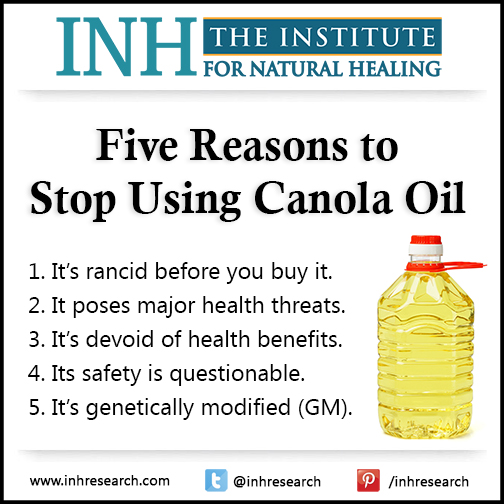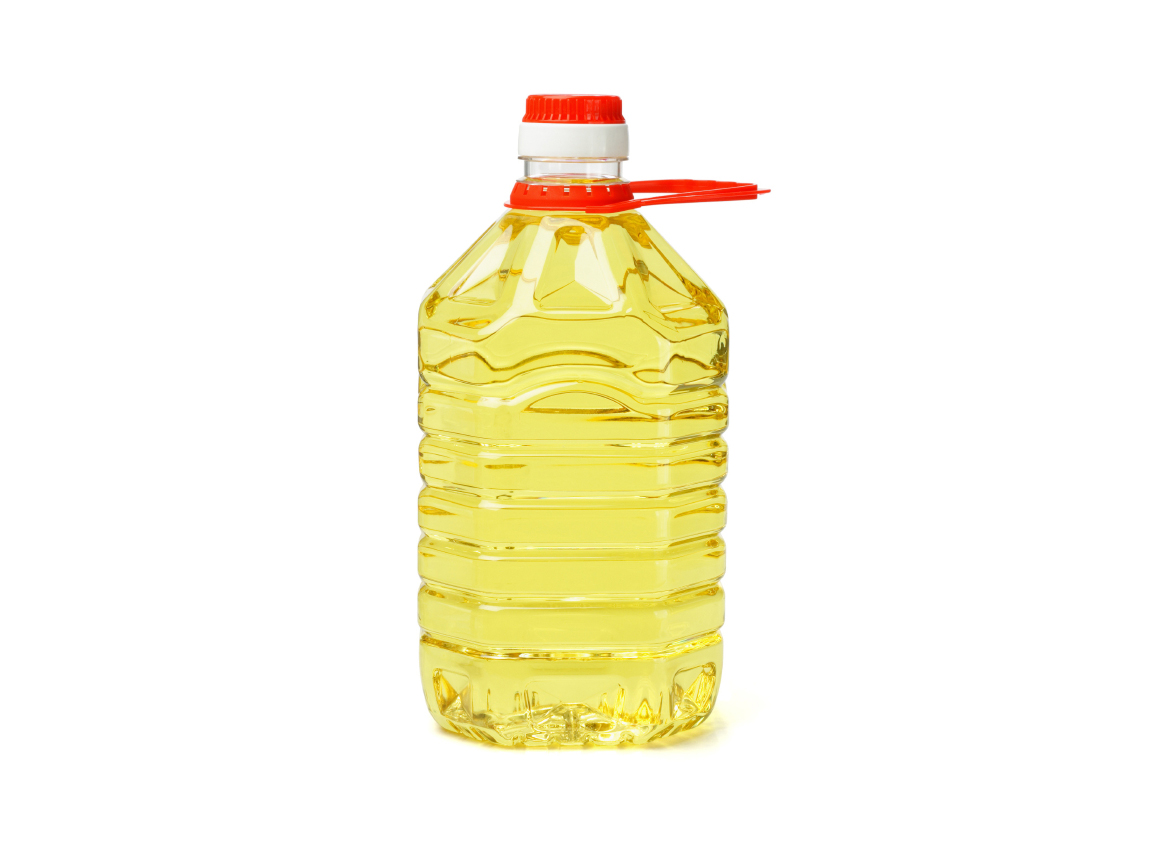Health Watch readers know when it comes to diet, fat isn’t the enemy. Despite what over 50 years of bad science will tell you, eating the right fats can sustain—even improve—your good health. But there are still some you should avoid at all costs. Canola oil is one of them. There are numerous studies—many funded by the U.S. Canola Association—touting the benefits of canola oil.1 But don’t let them fool you…
Here are five reasons to stop using canola oil:
1. It’s rancid before you buy it. Canola oil is a polyunsaturated fat. This type of fat is prone to oxidation.2 In other words—heat, light, or oxygen can cause it to go bad. But that doesn’t matter to Big Food.
They still use a high-heat process to extract the oil from the seed. The result? Much of the product spoils before it ever exits the factory. That means it’s been ready for the garbage for weeks—even months—before you bought it.
2. It poses major health threats. Canola oil won’t make you sick the moment you eat it… But the consequences of long-term use should have you reaching for other oils.
The manufacturing process produces chemical byproducts called aldehydes. These compounds take time to build up in your body. Over the years they can lead to heart disease and cancer.3 A study in the Journal of Agricultural and Food Chemistry reveals that aldehydes are formed at higher rates as the temperature of canola oil rises.4 Yet canola oil manufacturers subject their product to temperatures of 80–120° Celsius… That’s 176–248° Fahrenheit.5
3. It’s devoid of health benefits. Canola oil is rich in omega-3 fatty acids… But heat processing can change this. Heat destroys omega-3s. It also produces a foul smell.6 Canola oil manufacturers know this… So they deodorize the product. How? They use even more heat.7
It would be bad enough if the omega-3s were just useless… But they can turn into harmful trans fatty acids. Health Watch readers know these fats can cause heart disease, stroke, diabetes, and other devastating conditions.8
4. Its safety is questionable. Canola oil began as rapeseed oil. This oil contains high levels of erucic acid and glucosinolates. The FDA found them unfit for human consumption in 1956.
In the early 1970s, newer breeding practices helped reduce the amount of toxins in this oil.9 But don’t let lower levels fool you… These compounds are still present in canola oil today. And erucic acid is linked to heart damage.
In one study, researchers found that rats that consumed the most erucic acid developed the most lesions and fat deposits in their hearts.10
5. It’s genetically modified (GM). About 90% of the canola oil in the U.S. is GM.11 The DNA is altered so that rapeseed plants can resist the pesticide Roundup.
The chemicals in Roundup put us at risk for DNA damage. They may also raise our risk of developing certain cancers. And if you consume GM canola oil, there’s a good chance you’re getting a mouthful with each serving.
Research also suggests that genetically modified organisms (GMOs) could be to blame for a number of other health problems… Things like compromised immunity, infertility, insulin spikes, and premature aging. GMOs can also cause changes in major organs and in your digestive system.12
Canola oil is the third largest source of vegetable oil in the world.13 But you have healthier options to choose from. You always want to choose fats that have gone through the least processing. Try using coconut or avocado oils instead.
Always look for terms like “first cold-pressed.” This means manufacturers keep the oil below certain temperatures. It keeps them from turning rancid. The result is less toxins—and health threats. Avoiding GM products is a little easier. Just look for “organic” or “Non-GMO Project Verified” on the label.
In Good Health,

Angela Salerno
Publisher, INH Health Watch
Like this Article? Forward this article here or Share on Facebook.

References:
1http://www.ncbi.nlm.nih.gov/pmc/articles/PMC3746113/#__sec3title
2Rubin, Jordan, and Joseph Brasco. Restoring Your Digestive Health: How the Guts and Glory Program Can Transform Your Life. New York: Twin Streams, 2003. 84. Print.
3http://www.livestrong.com/article/459786-can-you-get-sick-from-eating-rancid-oil/
4http://pubs.acs.org/doi/abs/10.1021/jf035241f?_sm_au_=iHVlsFnjnWrF6S57
5https://www.oecd.org/env/ehs/biotrack/49343153.pdf
6http://www.westonaprice.org/health-topics/the-great-con-ola/
7http://www.drfranklipman.com/canola-oil-a-healthy-oil-fraud/
8http://www.hsph.harvard.edu/nutritionsource/transfats/
9http://www.ers.usda.gov/topics/crops/soybeans-oil-crops/canola.aspx
10http://www.ncbi.nlm.nih.gov/pmc/articles/PMC1277456/pdf/compmed00043-0031.pdf
11http://www.nongmoproject.org/learn-more/what-is-gmo/
12http://www.responsibletechnology.org/posts/gmo-health-dangers/
13http://www.ers.usda.gov/topics/crops/soybeans-oil-crops/canola.aspx

